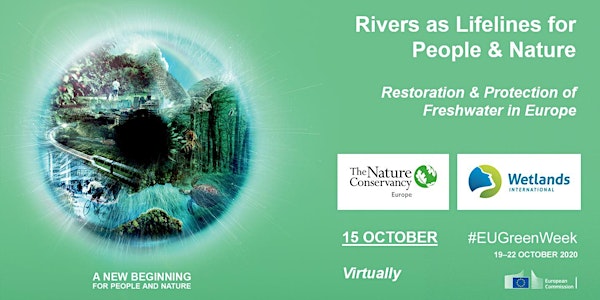
Rivers as Lifelines for People & Nature
This event seeks to underline the importance and raise awareness of the benefits of free-flowing rivers for their ecosystem services.
By The Nature Conservancy Europe
Date and time
Thu, 15 Oct 2020 01:30 - 07:00 PDT
Location
Online
About this event
Organised by
The Nature Conservancy is a global environmental nonprofit working to create a world where people and nature can thrive.
Founded at its grassroots in the United States in 1951, The Nature Conservancy has grown to become one of the most effective and wide-reaching environmental organizations in the world. Thanks to more than a million members and the dedicated efforts of our diverse staff and more than 400 scientists, we impact conservation in 79 countries and territories across six continents.